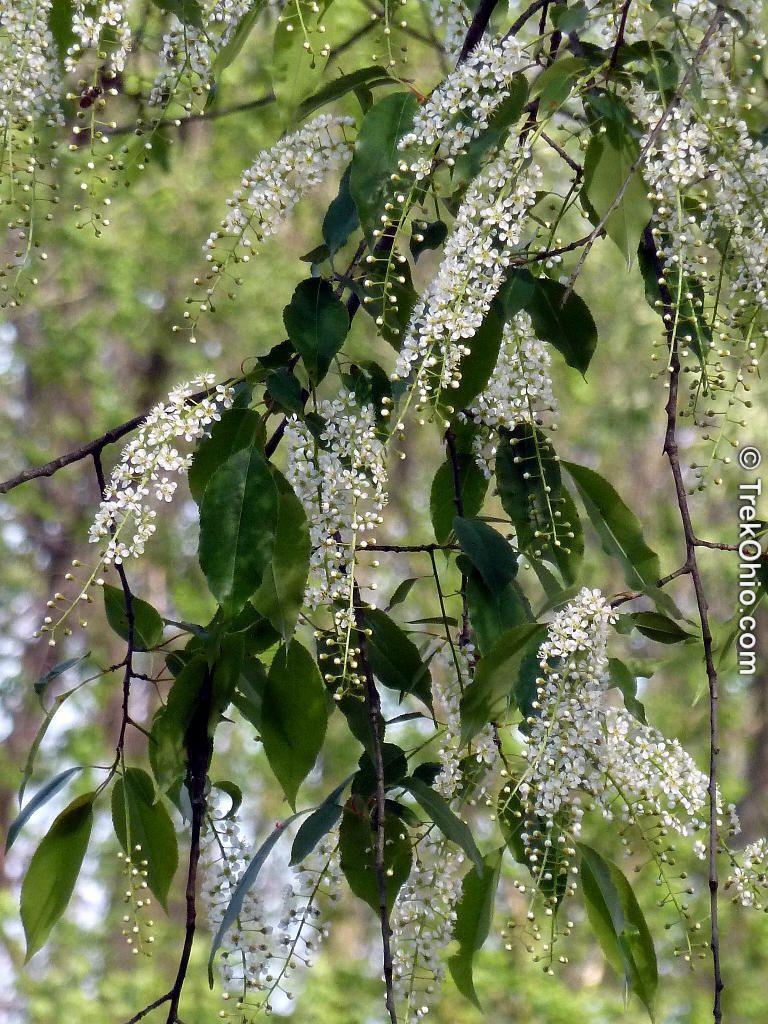
Black cherry (Prunus serotina)
Black cherry, also known as Whisky cherry, American cherry
The black cherry tree (Prunus serotina) is a medium-sized deciduous tree indigenous to the Americas and has also spread to parts of Europe. It is recognizable by its small white flowers in spring, which develop into clusters of dark cherries that are edible if the pits are removed. The tree's mature bark is dark and distinctly flaky, while its leaves are glossy and serrated.
However, there are several risks associated with this tree:
1. **Toxicity:** The leaves, bark, and seeds contain cyanogenic compounds that can release cyanide when ingested, posing a poisoning risk to livestock and pets.
2. **Invasiveness:** The black cherry tree is a highly reproductive pioneer species, which means it can spread rapidly and outcompete native plants in some areas, potentially becoming invasive.
3. **Allergens:** The pollen produced by the flowers can cause allergic reactions in some people.
While the black cherry tree is valued for its wood and fruit, its toxic properties and invasive potential warrant cautious management.
Key Facts About Black cherry
Attributes of Black cherry
Scientific Classification of Black cherry
Toxicity
Ingestion